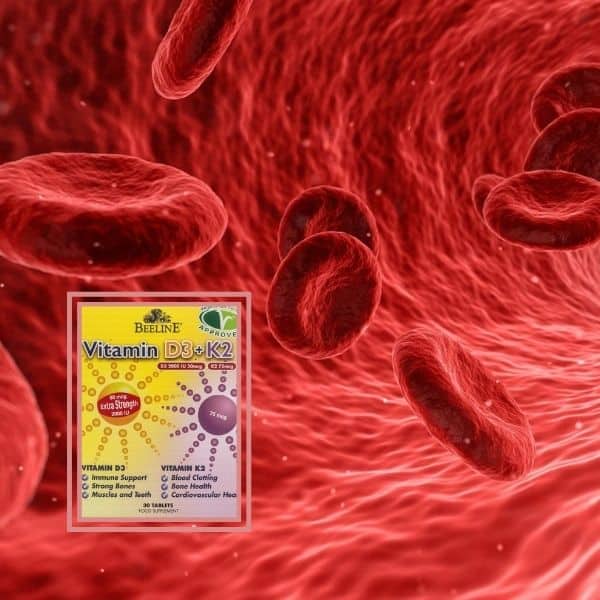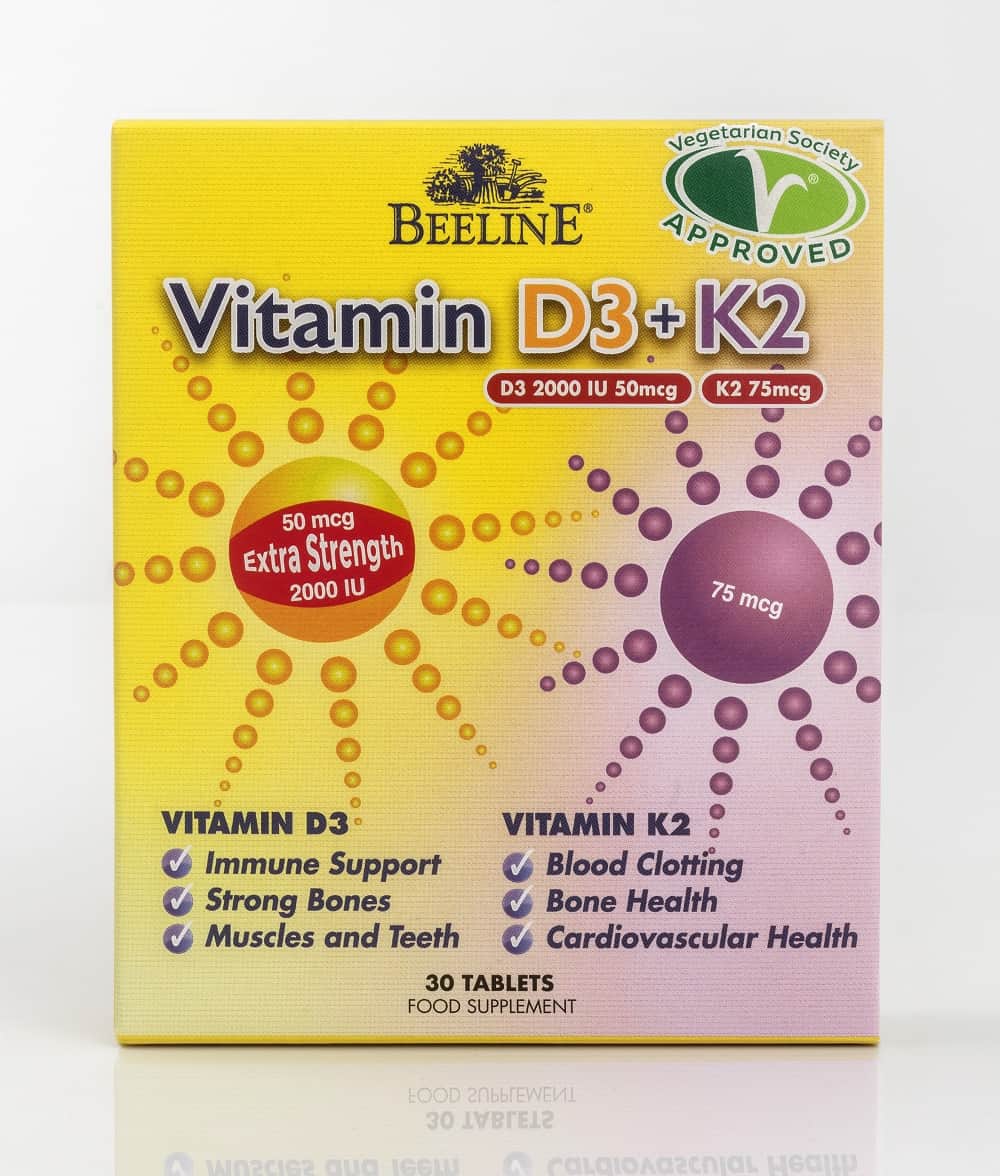Vitamin K: Role, Benefits and Sources
Vitamin K contributes to good health. It is vital for regulating blood clotting in our bodies, while also supporting our cardiovascular health and bones.
Vitamin K plays an essential role in regulating blood clotting. It also contributes to healthy bones and cardiovascular health. Vitamin K2 works synergistically with vitamin D to provide enhanced coronavirus outcomes. Signs of Vitamin K deficiency include easily bruising and excessive bleeding from cuts. The sources of the nutrient include food, bacteria in the gut and dietary supplements.
What is Vitamin K?
Vitamin K is a fat-soluble group of vitamins that contributes to good health. It is crucial for regulating blood clotting in the body, which heals wounds and stops cuts from bleeding continuously. It also assists with bone health and cardiovascular heart health. Vitamin K2 works synergistically with vitamin D to provide enhanced coronavirus outcomes.
Types of Vitamin K
There are two main types of vitamin K that provide important nutrients for good health and wellness. These are vitamin K1 (phylloquinone) and vitamin K2 (menaquinone).
Phylloquinone or vitamin K1 is the main type that is commonly digested in our diets. This is found in green leafy vegetables and salad leaves.
Menaquinone or vitamin K2 is not very common in our diets in Ireland. That is because it is found in some fermented foods in Asian diets and animal foods, while it can also be produced by bacteria within the body.
Role of Vitamin K2
Do I need vitamin K? Yes, vitamin K2 is vital for healthy blood clotting to heal lacerations on the body, and is important for the maintenance of normal healthy bones. It works synergistically with vitamin D to ensure that calcium is not only absorbed but sent to our bones, where we need it the most. Vitamin K is also needed for normal cardiovascular function.
The Benefits of Vitamin K2
What does vitamin K do? The benefits of vitamin K include:
- Contributes to normal blood clotting, which helps with healing cuts and wounds on the body.
- Supports bone development and the maintenance of normal healthy bones, while helping take excess calcium out of the blood.
- Assists cardiovascular health by protecting the arteries and blood vessels, while helping with blood pressure for a healthier heart.
- Combines with vitamin D to provide better covid-19 outcomes by assisting with thrombosis, which is the formation of blood clots within a blood vessel and a recurring feature from coronavirus infections.
- Links to improved cognitive health and memory in pensioners.
Signs of Vitamin K Deficiency
Vitamin K deficiency is not having enough vitamin K in your body. Generally, it is caused by either inadequate levels of the vitamin within the diet or inadequate absorption.
Signs of vitamin K deficiency include bruising easily, excessive bleeding from cuts, heavy period menstrual bleeding in women, and blood in your urine or stools.
Vitamin K deficiency bleeding or VKDB is quite rare. This is excessive bleeding of the body, which is called a haemorrhage. It has been seen with babies that do not have enough vitamin K to form blood clots to stop the bleeding.
How Do We Get Vitamin k?
The sources of vitamin K are:
- Food.
- Bacteria in the gut.
- Supplements.
Food
Foods such as leafy green vegetables, salad leaves as well as some meat and dairy contain vitamin K2.
These include:
- Vegetables including kale, broccoli, green beans, asparagus, sprouts and spinach.
- Traditional Japanese Natto.
- Vegetable oils and soybean oil.
- Cereals such as granola or Special K.
- Meat including beef liver and pork chops.
- Poultry such as chicken.
- Dairy including certain cheeses.
- Fruit such as kiwis and prunes.
- Salads including lettuce.
Bacteria
Menaquinone is also produced naturally by intestinal bacteria in the bowel or gut.
Vitamin K Supplements
Dietary supplements are another source of vitamin K. Beeline Healthcare have recently launched a new product Beeline Vitamin D3 + K2 Tablets.
Beeline Vitamin K Supplement
- Beeline Vitamin D3 and K2 tablets support a healthy immune system, muscles, bones, teeth, normal blood clotting and cardiovascular health.
How Much Vitamin K Should You Take?
The HSE and NHS recommend approximately 1 microgram of vitamin K per kilogram of body weight daily for adults. Beeline Vitamin K2 supplements contain 75mcg per tablet, which is suitable for all ages.


